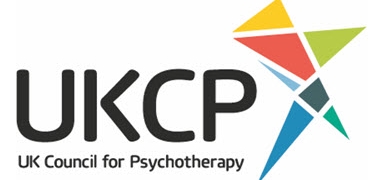Online vs In-person Therapy – which should you choose?
/Therapy and counselling can be extremely beneficial in providing support for the psychological challenges that are prevalent in modern-day living. From depression to anxiety, bereavement to relationship difficulties, having a safe space and person to talk to can be very helpful. Traditionally therapy has been in person, but over time there has also been a rise in online therapy.
Traditionally, therapy was always done in-person. However, COVID-19 accelerated a shift towards online therapy, normalising it and bringing it to the fore.
The onset of the COVID-19 pandemic accelerated this growth in online therapy, making it increasingly mainstream, a trend that looks set to continue. In the post-pandemic world, many have returned to in-person therapy, but online therapy has remained prevalent. One of the reasons for this, is the potential flexibility, convenience, and accessibility of online therapy.
While the pandemic has shown us the potential of online therapy in widening access to services, it has also reaffirmed the importance of traditional face-to-face therapy. This article explores the potential benefits (and drawbacks) of each form of therapy, looks at the research, and ultimately suggests that which approach is best is a very personal decision.
Please note, that for this article, online therapy is assumed to be carried out through video-based communication, where the client and therapist are able to both see and hear each other.
9 Potential Benefits of Online Therapy
The potential benefits of Online Therapy will be person dependent, but the majority of us will experience 9 benefits to doing therapy via an online medium. These are:
Accessibility: Online therapy allows individuals who may have limited access to mental health services, such as those living in rural or remote areas, or with mobility challenges, to receive the care they need. There is also scope for people to find therapists internationally, which can be helpful with language and cultural understanding.
Convenience: With online therapy, sessions can be attended from the comfort of a person’s home, eliminating travel time and the associated stress and costs of commuting.
Flexibility: Online therapy often provides more flexibility in scheduling, making it easier for people with busy schedules to get the help they need. Many therapists are more willing to meet at different times week on week when online, accommodating shift patterns and travel, as they are less restricted by room availability. This can be especially helpful for people working shift patterns or in industries requiring a lot of travel such as events management. It also eliminates the need for travel time, allowing sessions to fit more conveniently into people's existing schedules.
Anonymity: The relative anonymity of online therapy can help reduce the stigma some people may feel about receiving help with their mental health, encouraging more people to seek help. For example, they are less likely to be seen in the waiting room, or on the way in or out of the therapy practice. Additionally, if their therapist is not local, it is unlikely that they would bump into them outside of the sessions, creating the feeling of a safer container for the work.
Comfort: For those who are easily overwhelmed by new experiences, starting therapy online, may help them to find it easier to open up about personal issues in the familiar and safe environment of their own home. Additionally, people experiencing a lot of shame, and /or body shame and dysmorphia, may find working online and having the option of turning off the camera, a way to access support that they wouldn’t be able to otherwise. So for some, online working might bring the work to a group of people who had discounted face-to-face work, because it might have felt too shaming, or literally too close to home.
Availability of Therapists: With online therapy, there can also be greater access to counsellors and therapists working in specialist areas such as LGBTQ+, boarding school survivors, or offering EMDR (Eye Movement Desensitization and Reprocessing) or DBT (Dialectical Behaviour Therapy).
Lower Costs: Online therapy can be more affordable than traditional in-person therapy as it reduces the costs associated with commuting, as well as the time to get there and back which can be used more effectively.
Consistency: With the flexibility of online therapy, clients may be less likely to miss sessions, leading to more consistency and effectiveness in the work.
Ease for Technologically Savvy Clients: For those comfortable with digital communication, online therapy can feel more natural and engaging.
The Potential Drawbacks of Online Therapy
Despite its advantages, online therapy is not without its potential disadvantages.
A fundamental aspect of therapy is the human connection and rapport built between the client and therapist, which can sometimes be more difficult to achieve through a screen. It is also possible that non-verbal cues may be more likely to be missed or misunderstood in a virtual setting.
Undertaking therapy in the comfort of your own home can have benefits and drawbacks. Undertaking therapy in a counselling room gives you time to process and think about what you’ve discussed.
There can also be benefits to having to physically travel to and from the counselling room. The time before and after a session can be an integral part of the process, allowing people to reflect on what they would like to bring that week, and then on what they discussed and experienced afterwards. Going straight into a zoom meeting or looking after children immediately after, allows for less space for the therapeutic process to continue. When working online some therapists suggest building in a ritual or routine to replicate this, for example going for a walk outside the home before or after, taking time to have a cup of tea and journal or take notes, and marking out some time before and after in the diary.
Technical issues can also arise, such as unstable internet connections or software updates, which can lead to frustration. For this reason, many counsellors will agree on a back up plan, such as agreeing who will call who on the phone, and whether to continue or to reschedule.
9 Potential Benefits of Face-to-Face Therapy
Face-to-face therapy has largely been the standard, until very recently. Much research points to the relationship between client and counsellor as a core determining factor in the success of the work. For many, building this effective working relationship is easier face to face rather than online, enriching the therapeutic process.
The power of human connection is an important part of therapy which is often lost in the online environment.
Further benefits include:
Human Connection: Personal interaction can build a stronger therapeutic alliance, as it provides a deeper, level of connection and understanding. Many also find that the physical presence of the therapist provides a greater sense of comfort, security and holding.
Non-Verbal Cues: Therapists and clients can pick up on non-verbal cues such as body language, tone, and facial expressions that can offer critical insights into a person's feelings and behaviours, which might be missed during online sessions.
Focused Environment: In a therapy office, there are fewer potential distractions compared to a home environment, which can help the client stay focused during the session. For many it can also be difficult to find a private space at home where they won’t be overheard or interrupted. For others, home may not feel like a safe space.
Technological Concerns: Face-to-face therapy avoids technical issues such as unstable internet connections, lagging video, or problems with software that can disrupt an online session.
Safety and Crisis Management: For those dealing with severe mental health issues or in a crisis situation, in-person therapy can offer immediate, hands-on care and support which may be more effective.
Confidentiality: While many online platforms use secure encryption systems to ensure confidentiality, face-to-face therapy eliminates any potential risks associated with digital communication.
Comfort for Non-Tech-Savvy Clients: For people who are uncomfortable with technology, face-to-face therapy removes the stress and difficulty of navigating online platforms, finding Zoom links, updating software etc.
Therapeutic Ritual: The ritual of going to a physical location for therapy can, in itself, be therapeutic for some clients, marking a clear distinction between therapy and other aspects of life. The journey there and back, can also become part of the therapy itself and allow time to think about what they want to bring to the session, and mull over what was discussed and experienced.
Specialised Therapies: Certain types of therapy (e.g., art therapy, play therapy) may not be as effectively carried out online and require a physical presence.
What is the Research about online vs offline therapy
Research looking at the effectiveness of therapy online suggests that it can still be effective for many people. This 2014 research in the Journal of Affective Disorders showed that online therapy can be effective for treating depression. While this 2018 research published in the Journal of Anxiety Disorders included a meta-analysis of the research, concluding that online therapy can be equally as beneficial as face-to-face therapy for those with anxiety and depression. Most recently this 2021 research in The Journal of Medical Internet Research showed promising results with online therapy interventions for this with eating disorders.
So perhaps the question isn’t ‘does online therapy work?’ but what is best for the individual?
Different Online Therapy Platforms
While many therapists offer online therapy directly, there are also numerous brands and platforms dedicated to “online therapy”. Many of these online therapy platforms offer live chat, online messaging, texting, email, and phone communication as well as or instead of video communication. At the moment, it is worth noting that the effectiveness of these more anonymous and potentially less relational channels for delivering support has not been widely researched and studied.
So Which is Best? A Very Personal Decision
It is widely believed that the quality of the relationship between the client and therapist is fundamental to the success of the therapy. As such, whether in-person or online therapy is preferable, will ultimately be the very personal decision of the client and their therapist.
The decision ultimately depends on individual needs, preferences, circumstances, and comfort levels. For some, the convenience and accessibility of online therapy make it the perfect choice, while others may prefer the more human physical connection offered by face-to-face therapy.
It is also worth acknowledging, that we live in an imperfect world that requires us to make compromises every day. While face-to-face therapy may be seen as the gold standard option for many, the practical benefits of affordability, geography and flexibility may make online therapy the best way forward for many in practice.
As therapy online becomes normalised, many therapists are looking at ways to integrate creativity, expression, and innovative modalities into the onine therapeutic environment.
As human beings, we can also be incredibly creative. Many therapists are finding ways of working online in rich ways, even embracing technology such as using screen-sharing for introducing tools and ideas. Sometimes there is also the possibility of a hybrid approach, where the client and therapist meet at least once or more in-person to ‘get behind the screen’ but continue to do most of the work online.
Looking for face-to-face or online therapy? Therapists at the Palmeira Practice are available to offer both options. Contact us now if you would like to explore further.








